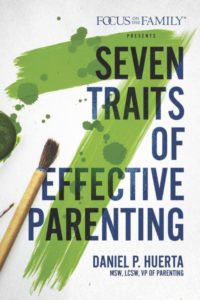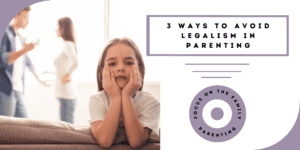Unrealistic Expectations
Parenting our young adult children with grace and forgiveness can be a challenge, but it’s one that we must rise to meet. When we have children, most of us make two mistakes:
- We expect their dreams to be our dreams
- We think that our kids are growing up in the same culture we grew up in
I learned this unexpectedly one day when I was talking to my 15-year-old daughter. I thought I was trying to gently encourage her to consider a path that had worked well for me. I had seen similar gifting in her and assumed that she would like my idea. My husband was listening as my daughter kindly resisted and said, “I think she’s saying she’s not interested.”
“Yeah,” she replied. “And besides, Mom, that might have worked for you in the old days, but it’s not for me.” Ouch! Ok, I get it.
We started talking about what she wanted to do. She replied, “Mom, do you know anyone else my age who reads anatomy and physiology books just for fun? I want to be a nurse.” And that’s just what she did!
Different Talents and Dreams
You see, most of us are mistaken on those two points, which may lead us to be disappointed in our adult children and their choices. We may provide guidance about adult life based on “what was” vs. “what is.” These two mistakes are particularly curious when made by Christians. After all, the Bible makes it clear that God has given specific gifts to each one of us. Our job is to glorify Him through recognition, development, and the use of those gifts. Our God-given talents tend to drive our dreams. But because those talents are often different from those of our kids, our dreams may be different as well. Parenting with grace and forgiveness can help us to understand and be flexible with our young adult children as they grow into adulthood.
A New Generation
We may also expect certain things of our adult children based on what we were doing at their age. These expectations are pretty unfair because the world has significantly changed since we were young adults. We can’t expect the same outcome. Parents and adult children have had to negotiate this so-called “Generation Gap” for centuries. However, it may be that the gap is far more significant between our adult children and us than in the past. The influence of technology and its devices over the past 20 years has accelerated the world’s rate of change. The Internet and social media have transformed how young people interpret the world, communicate, and connect with others. Digital technology has impacted us all.However, as parents, we need to remember that our children have been raised on it while it was introduced to us mid-life.
I’ve noticed that this gap in understanding has led some parents to judge their adult children unfairly. They may also provide guidance to their adult children that is no longer helpful. The judgment tends to communicate disappointment in the young adult. This wayward guidance sends kids off on rabbit trails that produce no good results.
Grace and Forgiveness for Young Adults
Therefore, parental grace and forgiveness extended to young adults are especially important in their decisions at this stage of life and their level of emotional maturity. There is likely no other time in a person’s life when so many crucial decisions need to be made that will impact the future. Should she pursue a particular career? Should he marry, and if so, who, when, where, and how? And if children are in the cards, when and how many? Where will she live?
Once these choices are made, they need to be implemented. But the world may be in a place in history where those choices are easy or nearly impossible to achieve. The world may also be somewhere in between those extremes. It’s no surprise, then, that this time of life is also a time of confusion, anxiety, and frustration for many young adults.
They may feel anxious because there are too many choices. When I was completing high school, there were four potential choices for young women: teaching, nursing, social work, or becoming a wife and mother. Young men had a few more options, but most stayed within a “top ten” list. I am glad that there are more options for young people these days. However, the pendulum swing to almost unlimited choices has created anxiety amid far too many possibilities.Th

Navigate family life with grace and love!
Grace and Forgiveness for a Changing World
As a consequence, many parents view their young adult children as unfocused, aimless, and lacking direction. They unfairly judge these as character flaws rather than acknowledge the many roads out there that confuse their kids. If you judge your young adult to be flawed, that is likely to increase her level of anxiety. However, the extension of grace and forgiveness for being indecisive will communicate understanding and empathy of a changing world. It will also encourage an open relationship in which your child will naturally pursue you for guidance regarding how to navigate an increasingly complicated world. You might want to:
- Normalize the feelings of confusion since it is common among the young adult population.
- Ask your son or daughter to write down two possible choices for each area of decision and write the pros and cons of each option.
- If frustrated by a pattern of indecision, address behavior but continue to communicate love and acceptance of your child. Make the indecisiveness the subject of concern, not your son or daughter.
- Ask for grace and forgiveness if you’ve previously responded harshly. Extension of genuine grace and forgiveness will teach your adult child to offer it in return, and will help them to develop an essential skill for coping with conflict or disappointment in life.
A Different Level of Emotional Maturity
When middle-aged parents get together and begin talking about their young adult children, emotional maturity often comes up. The average young adult is less emotionally mature than his or her parents were at the same age. There are several reasons for this, which I discussed in the first article in this series on the topic of adaptability. I want to elaborate on the post-high school education issue here.
Post High School Education Takes Longer
First, it generally takes longer to complete the education needed to get a good job and to be promoted to a level that will allow a young adult to support himself and his family. Young adults are living at home or with roommates longer than their parents did. They are not able to have the experiences that living independently contributes to increasing one’s level of emotional maturity. Managing finances without others’ support, negotiating the world of health care, insurance, car repairs and nurturing intimate relationships all provide emerging young adults with challenges that develop emotional maturity.
Basically, in the process of figuring out how to respond to these challenges, they make mistakes and learn by trial and error. They learn which emotional reactions bring positive results and which emotional reactions bring negative consequences. Emotional maturity slows when young adults’ friends or family members interfere with their ability to think and act independently.
Parents Fixed Problems Too Much
Second, many in the generation of parents who now have young adult children rescued their children too much. This has set up a dynamic where their kids learned to run to Mom and Dad to fix things whenever they faced a challenge rather than to figure their own way out of a mess. These parents thought they were showing support for their children when they argued with referees, demanded that teachers changed grades, and made excuses when their kids wanted to skip work to attend a concert. Unintentionally, they communicated that their kids needed their parents to manage their lives. They stood as a buffer between their feelings and inappropriate emotional reactions to disappointment. Therefore, they entered early adulthood severely handicapped regarding their skills for responding to problems with emotional maturity.
Some Things to Remember
Parents need to be gracious and forgiving when their adult children display less than mature emotional responses to life events. They need to:
1. Remember that we are instructed to be gracious to one another as God has been to us (Ephesians 4:32).
2. Acknowledge that lower levels of emotional maturity are related to some societal trends. 3. Resist the urge to rescue or fix the young adult. Communicate grace and forgiveness when an inappropriate emotional reaction has resulted in negative consequences for the adult child.
4. Take every opportunity to affirm your young adult child for good choices.
5. Be intentional about celebrating successes with them and be available to listen if they want to discuss failures.
Extending grace and forgiveness sets the foundation for discussing boundaries and limits with young adult children. The next article in this series will address that topic.
© 2018, 2020 Focus on the Family. All rights reserved.




















